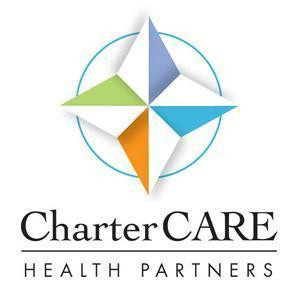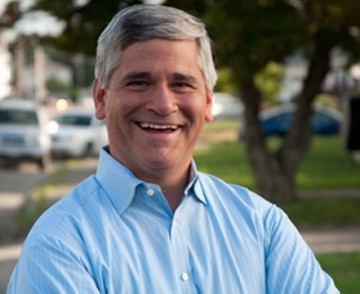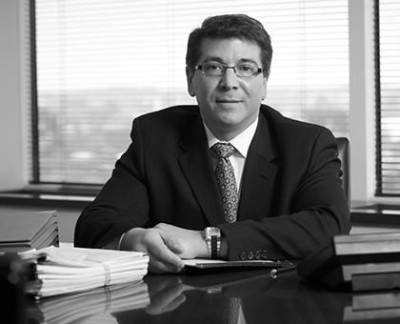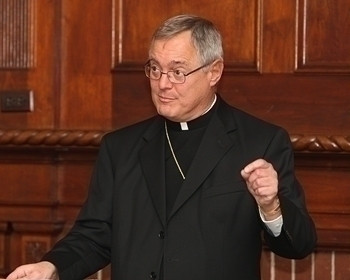Diocese, RWMC and CharterCARE All Failed to Make Millions in Pension Payments to St. Joseph
Wednesday, October 04, 2017
The St. Joseph pension fund was in a dire financial situation going back as early as 2007, according to actuarial documents secured by GoLocal.
Moreover, each of the three organizations that controlled the hospital over the decade ignored directives from the actuarial as to the amount needed for contributions to properly fund the pension fund.
In 2014, during the sale of St. Joseph to CharterCARE, the actuarial identified that the contribution needed to "reach 100% funding level projected to the end of the plan year” was $29,573,536, but CharterCARE's contribution was just $14 million.
GET THE LATEST BREAKING NEWS HERE -- SIGN UP FOR GOLOCAL FREE DAILY EBLAST“But, clearly a hospital like St. Joseph that was dealing with financial distress - you clearly know that if not funded properly, the retirees would be impacted adversely,” said Stephen Del Sesto, the receiver for the pension fund.
Retirees are now facing a 40 percent cut to their benefits.
Kilmartin Approved
The CharterCARE payment of less than half of what was needed for that year was approved Attorney General Peter Kilmartin as part of the sale of the hospital. “I do not know how it could be approved,” said Del Sesto
“It was an issue that had to be looked at and it was looked at, but I can’t say (to what detail by the Attorney General)," said Del Sesto.
Kilmartin has repeatedly refused to be interviewed regarding the collapse of the pension fund.
“As I previously wrote to you when you last requested an interview, the receivership is on-going, the Court recently appointed a special counsel to review the issue, and the Office is closely monitoring this ongoing process. As is standard policy, given these set of facts, we have no further comment at this time,” said Kilmartin’s spokesperson Amy Kempe in an email to GoLocal.
From 2007 to 2015, contributions were made only in two years. Despite the fund needing tens and tens of millions of dollars annually, contributions were made only in the years in which St. Joseph was being sold.
In 2010, when the Diocese merged St. Joseph into Roger Williams Medical Center — that year a $1.5 million contribution was recorded. The other contribution was the $14 million in 2014.
In response to GoLocal's questions, CharterCARE issued the following statement, “We understand how difficult this situation is for those employees and retirees who are impacted by the pension fund’s decision to file for receivership.
It is important to note that the pension fund (the “Pension”) is not connected to either Prospect CharterCARE, LLC or Prospect. The pension fund was organized by St. Joseph Health Services of Rhode Island, Inc., a separate organization that retained control of certain assets and liabilities that were not transferred to the purchaser when the transaction with Prospect was completed three years ago. Neither Prospect Chartercare, LLC nor Prospect have any oversight or control of the Pension.
As part of the overall transaction for the system, Prospect provided over $40,000,000 dollars in cash to the seller of the system. The allocation of the funds was a decision made by seller. Similarly, neither Prospect nor Prospect Chartercare had involvement with decisions about contributions to the plan in years prior to 2014."
But, the actual Hospital Conversion Act documents signed by all the parties in the sale of St. Joseph and the other hospitals to CharterCARE explicitly dictate just a single $14 million contribution would be paid to the St. Joseph pension fund and the fund would then be orphaned. Anyone at St. Joseph (or its then parent company Roger Williams), the purchaser (CharterCARE) or in Kilmartin's Attorney General's office that had read the actuarial reports (or tax filings) during those years would know the pension fund would crater in a short time period.
The sale was approved in the spring of 2014 and by August of 2017 the St. Joseph's pension fund was forced into receivership.
Diocese for Years Failed to Make Payments
On Monday night, nearly a thousand retirees attended a meeting with the group of attorney’s involved in the receivership.
Arlene Violet told the story of a 99-year-old retired nurse from St. Joseph, who worked for the hospital for 50 years and earns in pension payments $209 dollars a month and now faces a 40 percent cut in her benefits.
“The bad guys have to pony up the money to make folks whole,” said Violet on Monday, who is the past has singled out the Diocese of Providence, Attorney General Peter Kilmartin, CharterCARE for failure to protect retirees and fulfill their responsibilities.
In the records secured by GoLocal, the Diocese was shown to have failed to make payments in 2007 to 2009, then Roger Williams Medical Center made a payment of $1.5 million in 2010, but failed to make another payment.
CharterCARE made the one payment in 2014 and then the fund was orphaned and in August of 2017 filed for receivership.
Related Slideshow: 10 Things to Know About One of Biggest Pension Failures in RI - St. Joseph Receivership
Related Articles
- READ: St. Joseph Pension Fund Bankruptcy Documents
- Moore: State Should Rescue St. Joseph’s Pensioners
- 10 Things to Know About One of Biggest Pension Failures in RI - St. Joseph Bankruptcy
- After Week of Silence, Kilmartin Issues Statement on St. Joseph Pension Bankruptcy
- Mattiello Blasts Kilmartin on St. Joseph Pension Fund Bankruptcy
- Bishop Tobin ‘Prays for Swift and Positive Resolution’ for St. Joseph’s Retirees, Despite Role
- NEW: Raimondo Gives Comment St. Joseph’s Pension Fund Bankruptcy, Kilmartin Refuses
- St. Joseph Bankruptcy: Diocese Failed to Make Contributions to Employees Pension Fund for Years
- 1,000 St. Joseph Retirees Hear Horrors of Impact of Pension Fund Collapse
- Kilmartin Lawyer Who Approved St. Joseph’s Sale to CharterCARE Leaves AG After 23 Years
- St. Joseph’s Pension Fund Bankruptcy Could Be Just One of Many in RI
- Will Kilmartin Be Sued for Role in St. Joseph’s Pension Fund Bankruptcy?
- Emergency Status Hearing Friday on St. Joseph Pension Fund Bankruptcy
- St. Joseph Receiver Del Sesto to Meet with Raimondo, Ruggerio Proposes Bill
- VIDEO: Violet Hosts Meeting for Hundreds of St. Joseph Pension Fund Retirees
- VIDEO: Governor Raimondo Calls for Investigation into St. Joseph Pension Fund Bankruptcy
- Who Was Responsible for Protecting the St. Joseph Pension Fund?
- 38 Studios’ Wistow Named Special Counsel to Investigate St. Joseph Bankruptcy
- Riley: St. Joseph Pension Collapse Was Negligence or Malfeasance by Kilmartin



























